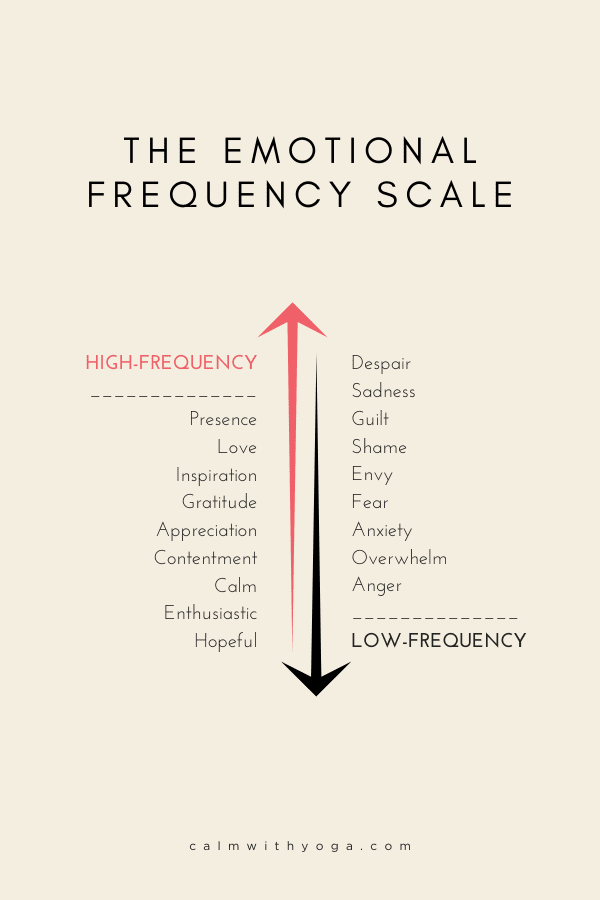It is very important to understand that emotional intelligence is not the opposite of intelligence, it is not the triumph of heart over head – it is the unique intersection of both.
– David Caruso, author of “Emotional What?”
Are intelligent people book smart people? Or heart-smart people? Or both?
That’s the question that emotional intelligence attempts to answer.
Emotional intelligence begins to develop in the earliest years.
All the small exchanges children have with their parents, teachers, and with each other carry emotional messages.
Daniel Goleman, author of ‘Emotional Intelligence’
Most of us aren’t taught self-management and emotional awareness at school much less at home in our personal life.
Some of us have grown up watching our parents struggle with their own emotional states and turmoil rather unsuccessfully.
This, in turn, has impacted our own mental health, well-being, and self-confidence as adults.
Whether you’re having a hard time trying to control emotional reactions or you’re looking to build stronger relationships, deepen social awareness, or improve decision making – you may benefit from learning and implementing the following emotional intelligence skills.
What is Emotional Intelligence?

If your emotional abilities aren’t in hand – if you don’t have self-awareness – if you are not able to manage your distressing emotions – if you can’t have empathy and have effective relationships, then no matter how smart you are, you are not going to get very far.
Daniel Goleman, author of ‘Emotional Intelligence’
Cultivating high emotional intelligence can change your life and relationships for the better.
Emotional intelligence isn’t something you’re born with or without.
It’s a skill and state of being that can be practiced, cultivated and learned.
We all have the capacity to exhibit and embody emotional intelligence no matter how emotional inept we perceive ourselves to be.
Being emotionally savvy or intelligent is generally understood as:
- Self-awareness. Being able to monitor and become aware of your own emotions, including difficult or uncomfortable ones.
- The ability to perceive the emotions of others in a way that allows for deeper authentic connections.
- The ability to manage your moods more efficiently and effectively.
- The ability to anchor into authentic gratitude and appreciation for your life and those in it on a regular or daily basis.
- Self-regulating, self-soothing, and self-nurturing in challenging, demanding, or stressful moments.
An individual’s ability to self-regulate (self-manage impulses, urges, and emotions) is one very important aspect of emotional intelligence.
We can cultivate a self-regulatory state of being by learning to increase our own psycho-physiological coherence.
Increased coherence allows for self-regulation to be not only possible but also very likely:
- We become more resilient in the face of adversity and we’re able to bounce back and recover more quickly and more efficiently.
- We’re able to sit with our pain and transform it instead of numbing or suppressing it or channeling it in destructive and unproductive ways.
- We deepen your heart’s intuitive capacity which supports us in making better and wiser choices.
Traditionally we’ve been preoccupied with the concept of IQ (intellectual quotient) to determine an individual’s level of intelligence.
And then two researchers – Peter Salovey and John Mayer – coined the terms EQ (emotional quotient) and EI (emotional intelligence).
This new concept was then popularized in the 1990s by Daniel Goleman’s book ‘Emotional Intelligence.’
EQ/EI involves two basic things:
1- Recognize, understand, and manage our own emotions
2 – Recognize, understand, and influence others’ emotions.
According to Goleman, these are the 5 most important elements of EI:
1- Self-awareness
2- Self-regulation
3- Motivation
4- Empathy
5- Social skills
Empathy and social skills are social intelligence, the interpersonal part of emotional intelligence.
That’s why they look alike.
Daniel Goleman, author of ‘Emotional Intelligence’
8 Ways To Increase Emotional Intelligence & Self-Awareness

1. Take deep breaths, especially during stressful situations
Deep belly breathing activates the relaxation response and helps your brain’s thinking and problem-solving centers come online.
It can help to re-center and boost your mood.
It can also help anchor you to the present moment so you can become more attuned to your inner world and others’ worlds too.
2. Learn to become aware of your own body language (nonverbal cues) so you can notice others’ too
Start to notice your own body language throughout the day.
Pay attention to what body language corresponds to what emotional state you’re in.
You can also use body language to shift your mood and emotional state.
A simple tweak such as sitting up more erect can help you feel more self-assured and self-confident.
The more you are conscious of your own body language the more you’ll be able to read others’ body language to understand them better.
3. Learn to become comfortable with uncomfortable or negative emotions

Instead of denying, fighting, or trying to eradicate the emotion, practice staying with it.
Breathe through it.
Learn to stay with it enough to learn from the emotion.
Emotions are ‘energy in motion.’
They are neither good nor bad – they are simply feedback.
Uncomfortable emotions offer many gifts and lessons so try to stick with it long enough to uncover them.
One way to ride the waves of uncomfortable emotions is to simply name the emotion.
Whatever you’re feeling simply name it – anger, fear, worry, frustrated, sad…
Brain scan studies have shown that this simple act of naming what we’re feeling can actually shift the circuits in the brain – the fear center calms down while the thinking centers come online. (1)
4. Pay attention to others’ emotions from a place of detachment
“If you are tuned out of your own emotions, you will be poor at reading them in other people.”
Daniel Goleman, author of ‘Emotional Intelligence’
The more you become familiar with your own emotions the more you’ll be able to pay attention to others’ emotions and simply observe mindfully without reacting.
This is a powerful skill to master for social empowerment and influence not to mention self-mastery.
5. Bring mindfulness to social media usage
How do you approach social media with emotional intelligence?
By observing yourself while you’re scrolling and double-tapping.
Do you feel triggered?
Do you experience FOMO (fear of missing out) or envy?
Feelings of inadequacy?
Inspiration?
Motivation?
Notice how you feel and pay attention to who you react to.
You’re allowed to mute, unfollow, defriend, or block people and accounts for the sake of your emotional and mental well-being.
6. Prioritize healthy relationships
Take note of the relationships in your life, especially the closest ones.
Do they drain you or fulfill you?
Do you feel like you have to shrink in order to connect or that you can’t be yourself?
Notice how you feel with each person and be ruthless when it comes to who you choose to invest your precious energy and time with.
Healthy relationships push us to grow, honor authenticity, take responsibility and accountability, are centered around meaning and inspiration.
Surround yourself with those types of connections if you are serious about increasing your EQ.
7. Practice Brahmacharya (self-control) & Svadhyaya (self-study)
One trait of emotionally intelligent people is that they practice self-control.
They may not always win at it, but they make it a habit to practice regularly anyway.
In the Yoga, self-control is called Brahmacharya, which also means to abstain from.
One way to practice Brahmacharya (and therefore to also practice yoga), is to abstain from giving in to emotional impulses, reactions, and whims.
You can do this by casting the light of awareness in each emotionally charged moment.
The more you do this the more it becomes a habit.
When you pair Brahmacharya with Svadhyaya (self-study) you have a winning combo.
Both yogic practices will help you increase EQ and self-connection.
8. Use your significant other as a mirror and learning tool
If you’re in a relationship of any kind practice using it as a training ground for EQ building.
Relationships are mirrors reflecting back to us that which we judge, criticize, or condemn in the other.
Honor yourself, your partner, and your relationship by observing your partner mindfully.
See if you can study them and their emotional states the way an anthropologist would study its subject – with intent, presence, and presicion.
Then ask yourself – “where do I do this in my life?” or “how do I exhibit this same trait I’m judging them for?”
Relationships offer a potential treasure trove of EQ gems if we look hard enough.
For further EQ resources:
Psychology Today has an Emotional Intelligence test. (2)
Harvard Business Review’s 3 questions to boost EQ: (3)
1 – What are the differences between how you see yourself and how others see you?
2 – What matters to you?
3 – What changes will you make to achieve these goals?
REFERENCES
:
(1) https://www.scn.ucla.edu/pdf/Torre(2018)ER.pdf
(2) https://www.psychologytoday.com/us/tests/personality/emotional-intelligence-test
(3) https://hbr.org/2018/08/boost-your-emotional-intelligence-with-these-3-questions












